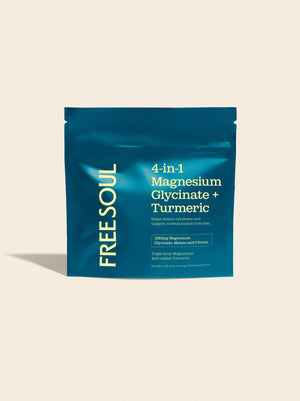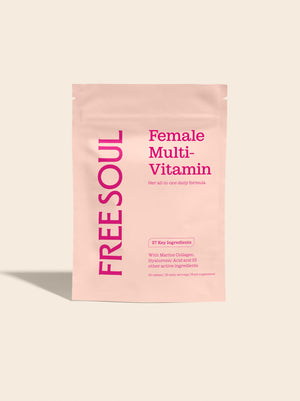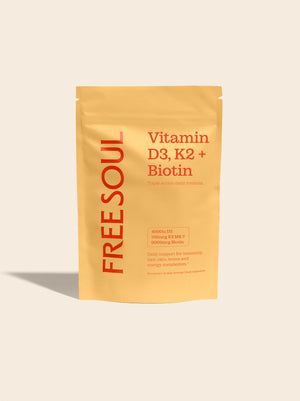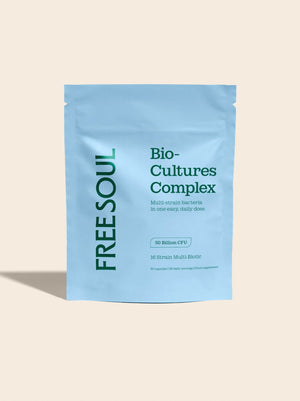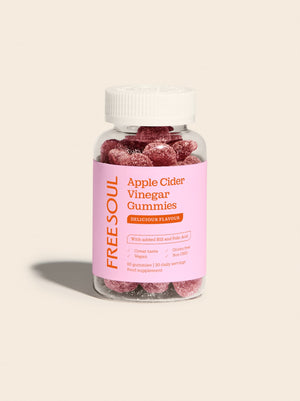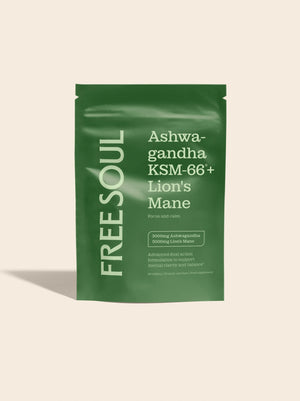Choosing which supplements to take can be a minefield. The supplements industry isn’t regulated in the same way as prescribed medicines are, and so marketing claims often don’t match up with effect. When it comes to supplements, it’s important to choose a high quality one, containing sufficient dose for its intended benefits. Supplement requirements vary between individuals and needs depend on other lifestyle factors including diet or where you live.
Women also have individual supplement requirements. But which supplements have been proven to be of benefit?
Vitamin D
Vitamin D is actually important for everyone to take, particularly through the autumn/winter months from October - March. If you live in the UK, you will have noticed we don’t get much sunlight over winter months and the days are very short. The majority of vitamin D comes from sunlight, absorbed through our skin. Only around 10% comes from dietary intake, from foods such as eggs, oily fish, or fortified in breakfast cereals and plant milks. In winter months it’s recommended that everyone supplements with 10micrograms per day to avoid deficiency (affecting as many as 1 in 4 of us!). Darker skin tones or people who cover up when outdoors and don’t get much sunlight on their skin may need to supplement all year round. Discover Free Soul's Vitamin D3 + K2 and Biotin.
Iron
Iron has a role in many functions in the body and importantly, it’s necessary for haemoglobin production (the molecule which carries oxygen in the blood to give us energy). Iron deficiency is common in women who have heavy menstrual bleeds, particularly if they don’t eat red meat, which is the main dietary source of iron. Supplementation may be required throughout the cycle, or in the week after the menstrual bleeds/start of the follicular phase, depending on the heaviness of the flow. The ‘normal’ level of iron is stated as a range, but women may experience symptoms of low iron such as tiredness and fatigue, if their level is running low than usual. If you're looking to supplement both Iron & Vitamin D, why not try Free Soul's Multivitamins with Collagen.
Inositol
For women with PCOS, there is an imbalance between the male and female sex hormones which drives symptoms such as irregular periods. There is also an element of ‘insulin insensitivity’ whereby the body has difficulty balancing blood sugar levels. This can lead to symptoms such as weight gain, or difficulty losing weight. The dysregulated blood sugar levels can also further drive the imbalance between male and female sex hormones. Inositol is a supplement that has been shown to play a role in insulin signaling and improve the body’s sensitivity to it. Supplementing with myo-inositol in the context of a healthy diet rich in lower GI carbs, lean proteins and lots of plant-based whole foods may help improve blood sugar regulation and manage symptoms for women suffering with PCOS.
It’s important to remember that supplements are intended to do what they say on the packet: supplement and not replace a healthy, balanced diet. There may also be times in a woman’s live such as planning for conception, pregnancy, breastfeeding or menopause when other supplements are recommended, but this again is individual and should be advised by your own doctor.







